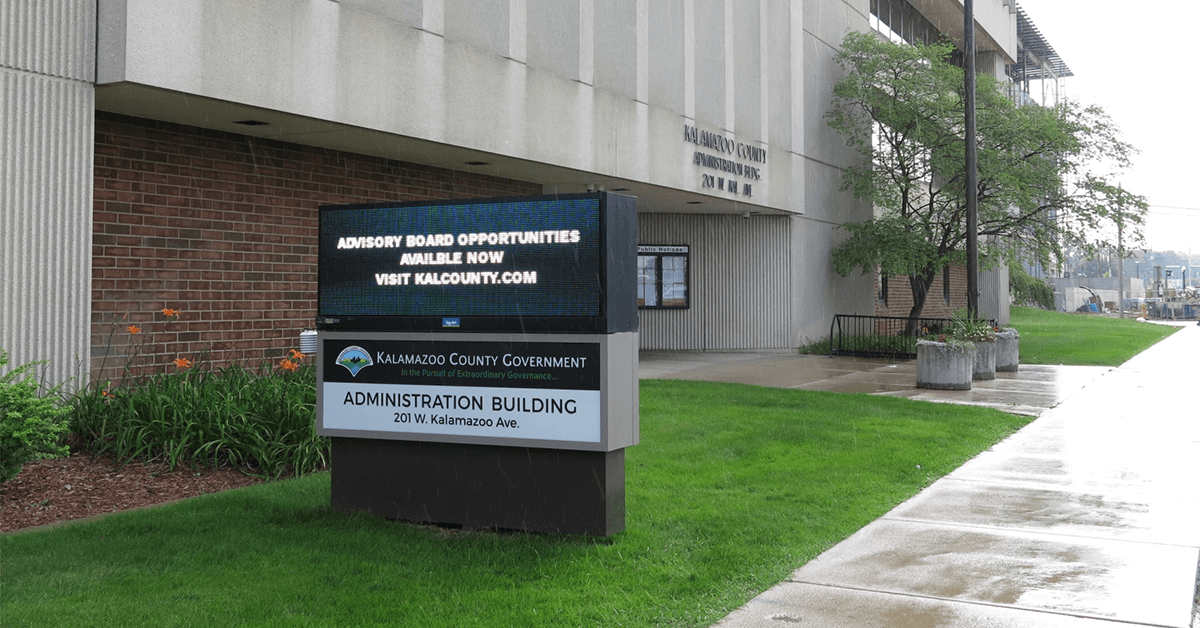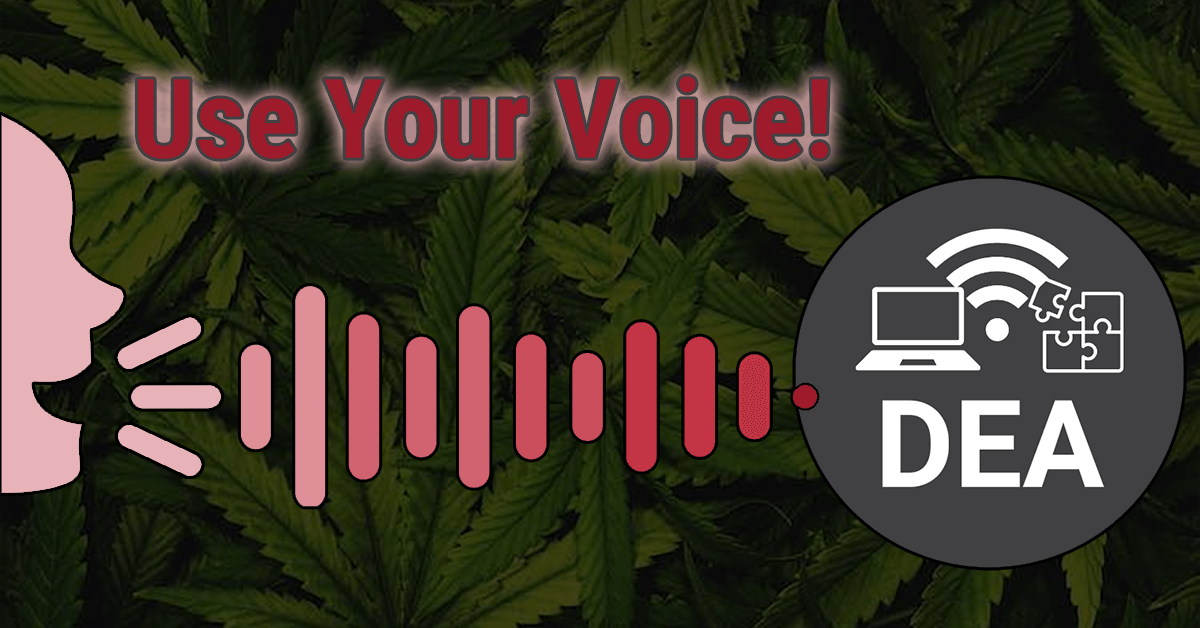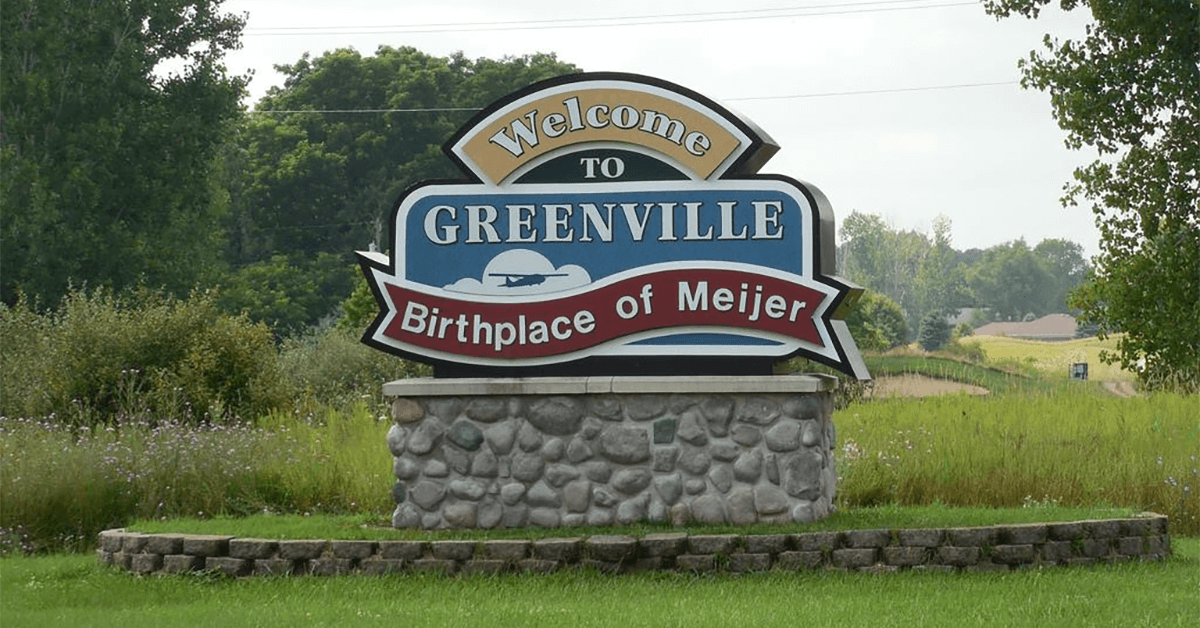Kalamazoo County Revises Employee Drug Testing Policy

The Kalamazoo County Board of Commissioners has unanimously approved revisions to its employee drug testing policy, introducing new provisions regarding legal substances. This decision was made during the board's meeting on Tuesday, July 16th.
Previously, the county's drug-free workplace policy stipulated strict disciplinary actions for employees testing positive for drugs or alcohol. These measures could range from disciplinary action "up to and including discharge for a first offense" to other corrective actions, depending on individual circumstances.
The updated policy now provides the county with the discretion to decide whether an employee should face disciplinary action for testing positive for legal drugs or alcohol. Despite this change, the county maintains a zero-tolerance stance on illegal drugs, according to county spokesperson Taylor Koopman.
A significant modification in the policy is the replacement of the term "will" with "may" concerning potential disciplinary actions. This change grants the county greater flexibility in handling cases involving legal substances.
The agenda packet did not provide a specific reason for the policy revision, and Koopman did not immediately respond to inquiries regarding the motivation behind this change.
Additionally, the board voted to eliminate a policy related to medical marijuana, aligning the county's regulations with state laws.
Coldwater Mayor Proposes Ban on Cannabis Grow Facilities in Industrial Zones

Coldwater Mayor Tom Kramer is advocating for the cessation of cannabis grow facilities within the city's D-2 heavy industry zones.
In August of last year, the Coldwater Planning Commission approved a motion initiated by Kramer to begin phasing out special use permits for cannabis grow operations in the industrial park. Despite this approval, no further action has been taken since.
During a Planning Commission meeting on Monday, Kramer suggested that with Amanda O'Boyle succeeding the retiring Meghan Angell as City Attorney, there is now an opportunity to advance this initiative.
Kramer acknowledged that market conditions might ultimately influence the future of these grow facilities.
Notably, retail cannabis operations in the city would remain unaffected by this proposed change.
Following further discussions, the Planning Commission members reached a consensus in support of Kramer's proposal.
City Manager Keith Baker mentioned that a draft of the proposed changes could be prepared for review at the next Planning Commission meeting.
Senator Gary Peters Proposes DOOBIE Act to Modernize Federal Hiring Practices

Senator Gary Peters, a Democrat from Michigan, has introduced a new bill aimed at preventing federal agencies from using past cannabis use as a factor in employment and security clearance decisions. The bill, known as the Dismantling Outdated Obstacles and Barriers to Individual Employment (DOOBIE) Act, represents a significant effort to modernize federal employment practices in light of evolving cannabis laws.
Senator Peters submitted the DOOBIE Act last week, marking the latest legislative push to ensure that prior cannabis consumption does not negatively impact an individual's eligibility for federal employment. This initiative reflects growing recognition of the need to align federal employment policies with the broader legalization trends seen across many states.
The DOOBIE Act specifies that federal agencies covered by the legislation "may not base a suitability determination with respect to an individual solely on the past use of marijuana by the individual." Additionally, the White House Office of Personnel Management (OPM) would be required to adopt and enforce this policy.
Furthermore, the bill stipulates that "the head of a Federal agency may not base a determination that a covered person is ineligible for a security clearance solely on the past use of marijuana by the covered person." This provision aims to prevent prior cannabis use from being a barrier to obtaining the necessary credentials for federal employment.
Under the proposed legislation, federal agencies would also be prohibited from using past cannabis use as a reason to deny a personal identity verification credential. This credential is essential for federal employees to access various facilities and information, making this an important aspect of the DOOBIE Act.
The Director of National Intelligence (DNI) would be tasked with updating regulations to align with the new cannabis policies and assist other federal agencies in implementing these changes. Notably, the DNI has previously stated that it is not the current policy of the federal government to deny security clearances based solely on past cannabis use, acknowledging that such practices can hinder recruitment efforts, especially as cannabis legalization becomes more widespread.
Senator Peters' legislation parallels a bipartisan House bill introduced last year, which aimed to provide employment protections and prevent security clearance denials for past and current cannabis use. However, an amendment in committee narrowed the scope of that bill to address only past consumption.
The DOOBIE Act is part of a broader movement to modernize federal employment and security clearance policies, ensuring they reflect contemporary attitudes towards cannabis use and support the recruitment and retention of qualified individuals in the federal workforce.
Voice Your Support: DEA Public Comment Period on Cannabis Legalization

The DEA is currently accepting public comments for two more weeks regarding cannabis legalization. Despite an estimated 70% of American voters supporting the legalization of cannabis for recreational use by individuals 21 and older, the DEA has received only 27,000 comments, far from a representative sample of public opinion.
Why Your Voice Matters
Cannabis Legalization and Rescheduling
This is a critical time to support the legalization and rescheduling of cannabis. A greater number of public comments are needed to accurately reflect the public's interest in this issue.
Economic Impacts
Legalizing and regulating cannabis can create jobs, generate tax revenue, and stimulate economic growth.
Criminal Justice Reform
Legalization can reduce incarceration rates for non-violent drug offenses and help expunge records for past cannabis-related convictions. This would save government resources and focus on more serious issues such as drug trafficking, while also restoring individual freedoms.
Medical Benefits
Many patients rely on cannabis for medical treatments. Rescheduling can enhance research opportunities and improve accessibility. Cannabis contains a variety of natural cannabinoids with medical potential beyond THC and CBD, including some that are non-psychoactive.
Public Health and Safety
Regulation ensures product safety and quality, protecting consumers from harmful substances and impurities. This can lead to a better understanding of the long-term effects of cannabis use.
Preventing Harmful Practices
Advocate for safer production practices. While some safety measures are in place, such as child-proof packaging and lab test results on labels, there is no framework to prevent harmful practices similar to those seen in the tobacco and alcohol industries.
- Tobacco: Cigarette manufacturers add over 600 chemicals to tobacco to "improve the experience," making cigarettes more harmful and addictive. Similar practices could affect cannabis if preventative measures are not implemented.
- Alcohol: Alcohol products often lack nutrition labels and fail to disclose adverse health effects. This issue could also affect cannabis products, including flower and edibles.
Additional Advocacy Opportunities
Psychedelics
Advocate for the legalization and decriminalization of other substances, such as psychedelics, which have been unfairly demonized and criminalized. Some psychedelics, like psilocybin mushrooms, could be legal for recreational use, while others, like LSD, MDMA, mescaline, and ibogaine, have significant medicinal value.
Tobacco and Alcohol Regulations
Advocate for stricter regulations on cigarettes, such as child-proof packaging, lab test results, and limits on additives. Similarly, push for alcohol products to improve transparency and safety measures.
Consistent Regulations Across Substances
Advocate for consistent regulations across all substances. Flavored cannabis and tobacco products are often targeted for appealing to children, yet similar marketing tactics are prevalent in alcohol products. Consistent standards can address these inconsistencies. Currently, products like SunnyD vodka and Voltron beer are available on shelves, while clove cigarettes and flavored vapes are banned.
Participate in the DEA's public comment period, contact your representatives and congresspeople, and encourage others to do the same. Act now to ensure your voice is heard before the deadline! Please share this information.
Important Links
- DEA Comment Page
- Contact US Congress Senators
- Debbie Stabenow (D) of Lansing
- Gary C. Peters (D) of Bloomfield Hills
- Find Your State Representatives
Need help figuring out what to say? Use these customizable boilerplates to effectively voice your support.
Submit this template to the DEA comment form to express your support for cannabis rescheduling. Replace [Your Name] with your own name to ensure your voice is heard in this important discussion.
To Whom It May Concern,
I am writing to express my strong support for the rescheduling of cannabis. This policy change is essential for several key reasons:
- Economic Benefits: Legalization and regulation of cannabis can drive job creation, generate tax revenue, and stimulate economic growth.
- Criminal Justice Reform: Reducing incarceration rates for non-violent drug offenses and expunging past cannabis-related convictions will save government resources and restore individual freedoms.
- Medical Benefits: Many patients depend on cannabis for medical treatments. Rescheduling will enhance research opportunities and accessibility, helping unlock the therapeutic potential of various cannabinoids beyond THC and CBD, including non-psychoactive compounds.
- Public Health and Safety: Regulatory measures ensure product safety and quality, protecting consumers from harmful substances and impurities, and promoting a better understanding of the long-term effects of cannabis use.
- Preventing Harmful Practices: A robust regulatory framework can prevent harmful practices seen in other industries, such as the addition of harmful chemicals in tobacco or the lack of transparency in alcohol products.
Furthermore, I advocate for the consistent regulation of all substances, ensuring fair and uniform standards across cannabis, tobacco, and alcohol products. This approach will address market inconsistencies and promote fairness.
With overwhelming public support for cannabis legalization, it is crucial that our voices are heard in this process. Thank you for considering my perspective.
Sincerely,
[Your Name]
Use this template to convey your support for rescheduling cannabis to your representatives. Make sure to personalize it by changing [Recipient's Name], [Your Name], [Your Address], [City, State, ZIP Code], and [Email Address] with your own information.
Dear [Recipient's Name],
I am writing to express my strong support for the rescheduling of cannabis. As a concerned citizen, I believe this change is crucial for several important reasons:
- Economic Benefits: Legalizing and regulating cannabis will create jobs, generate tax revenue, and stimulate economic growth. This can provide much-needed financial support to our communities.
- Criminal Justice Reform: Legalization will reduce incarceration rates for non-violent drug offenses and help expunge records for past cannabis-related convictions. This will save government resources and allow law enforcement to focus on more serious issues, while also restoring the freedoms of many individuals.
- Medical Benefits: Many patients rely on cannabis for medical treatments. Rescheduling will improve research opportunities and accessibility, allowing for the exploration of the therapeutic potential of various cannabinoids beyond THC and CBD, including non-psychoactive compounds.
- Public Health and Safety: Regulation ensures product safety and quality, protecting consumers from harmful substances and impurities. This can lead to a better understanding of the long-term effects of cannabis use and promote responsible consumption.
- Preventing Harmful Practices: Implementing a robust regulatory framework will prevent harmful practices seen in other industries, such as the addition of harmful chemicals in tobacco or the lack of transparency in alcohol products.
Additionally, I urge you to consider advocating for the consistent regulation of all substances, ensuring that the same standards are applied to cannabis, tobacco, and alcohol products. This will address inconsistencies and promote fairness in the market.
This is a pivotal moment for cannabis policy, and public support is overwhelmingly in favor of legalization. I hope that my voice, along with the voices of many others, will be heard and considered in this decision-making process.
Thank you for your attention to this important issue.
Sincerely,
[Your Name]
[Your Address]
[City, State, ZIP Code]
[Email Address]
Greenville Moves Toward Legalizing Recreational Cannabis Sales

The Greenville City Council is poised to make a significant decision regarding the retail sale of recreational cannabis. Following a unanimous vote by the Greenville Planning Commission on June 27th, the Council will consider adopting an ordinance that would legalize and regulate cannabis retail establishments within the city.
The proposed ordinance aims to amend Sections 46-1 and 46-167 of Chapter 46 in the Greenville Code of Ordinances. These changes are designed to set clear guidelines for the operation of recreational cannabis retailers, ensuring that these businesses comply with local zoning regulations.
Should the ordinance receive approval during the City Council meeting on July 13th, recreational cannabis sales could commence as early as August. This move would position Greenville to join a growing number of municipalities across the state that have embraced the regulated sale of cannabis, reflecting shifting public attitudes and the potential economic benefits of this emerging market.
The planning commission's decision to recommend the ordinance highlights the city's proactive approach to integrating cannabis businesses into the local economy, while also addressing community standards and regulatory needs.
Residents and stakeholders are encouraged to participate in the upcoming public hearings, where they will have the opportunity to express their views on the proposed ordinance before the council reaches a final decision.
Michigan Proposes Unified Cannabis Licensing System, Merging Recreational and Medical

Bi-partisan legislation introduced in Michigan seeks to streamline the state's cannabis laws by merging regulations for the adult-use and medical cannabis industries. This reform initiative aims to address the complications and burdens posed by the current dual regulatory system, which has been described as cumbersome for both businesses and the state's Cannabis Regulatory Agency (CRA).
The proposed legislation would repeal the state's 2016 Medical Marihuana Facilities Licensing Act, simplifying the regulatory framework for cannabis operations. Currently, cannabis businesses must renew both a medical and a recreational license annually to grow, process, transport, or sell cannabis products. The new legislation proposes a unified licensing system, which would require only one license per activity under the state's cannabis legalization law. Importantly, the proposed changes will not affect the existing system for medical cannabis patients and caregivers established under the state's 2008 medical cannabis law.
State Representative Graham Filler (R-St. Johns), a co-sponsor of the bill, emphasized the benefits of this streamlined approach. "Streamlining and simplifying these laws is a win for everyone involved – from businesses to patients to regulators," Filler stated. He highlighted the obsolescence of the dual licensing system, noting that recreational use now dominates the market, accounting for approximately 99% of cannabis sales in the state.
Representative Jimmie Wilson, Jr. (D), another co-sponsor, expressed optimism about the proposal's potential to enhance Michigan's appeal to cannabis businesses. "This is about making Michigan an attractive and stable place for marijuana businesses to thrive," Wilson said. "A single, cohesive regulatory framework will support our growing economy, ensure the safety and quality of marijuana products, and maintain access for medical marijuana patients. This is a forward-thinking approach that positions Michigan as a leader in the industry."
Under the new system, the changes would take effect in March 2026. Existing medical licenses that have not expired by this date will be converted to a new, generic title; for example, provisioning centers would be reclassified as "marihuana retailers." The legislation also allows local governments the opportunity to block medical marijuana dispensaries from expanding their operations if they act before the March 2026 deadline.
This legislative effort follows a previous attempt in 2021 to reform Michigan's cannabis regulations, which faced significant opposition from home caregivers. Learning from past challenges, Filler noted that the current proposal is more focused and has been developed in consultation with industry stakeholders. "In this one, the industry's actually going to benefit. It's going to be streamlined. So why would they push back on something that's kind of a down-the-middle bipartisan push?" he said.
However, the legislation could encounter two major hurdles: the legislative calendar and the requirement for a supermajority vote. With lawmakers on their summer break and the November general election approaching, there is limited time to address substantial legislative changes. Additionally, because the legislation seeks to amend laws enacted through voter initiatives, it requires a three-fourths supermajority vote to pass both chambers of the Legislature.
Despite these challenges, Filler remains confident. "I think I'll be okay in the Republican caucus because I think words like modernization and efficiency, and cutting the red tape, streamlining the process … that's how we speak, that's what we think about," he said.
The bills were referred to the House Regulatory Reform Committee on June 27th.


 Helpful Links
Helpful Links